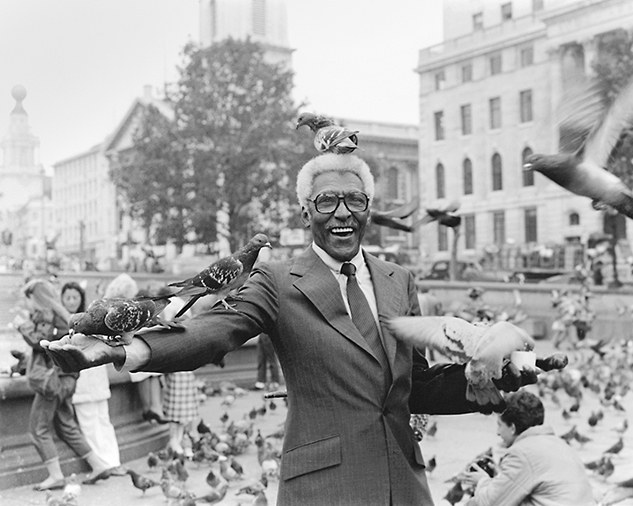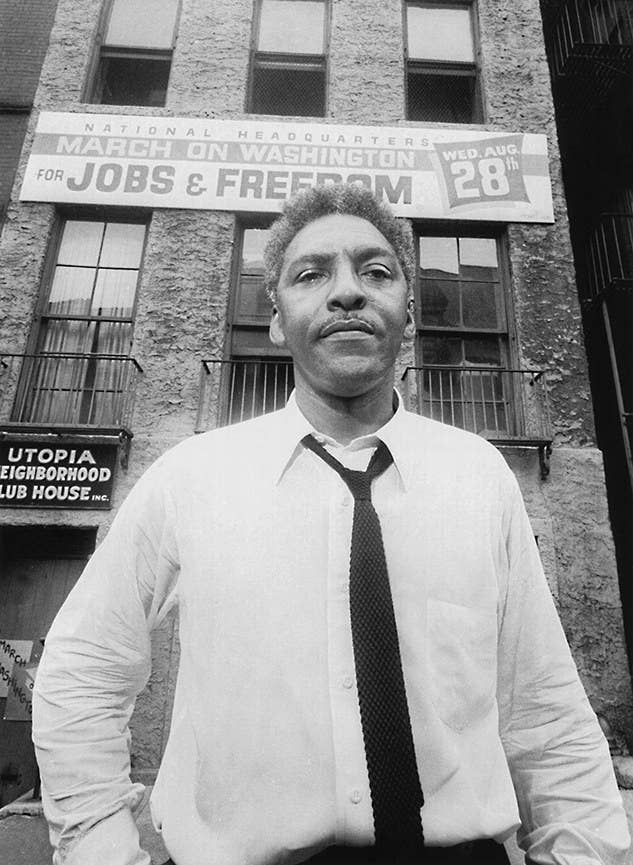
An Activist's Upbringing
It's not often that a man who laid the blueprint out for some of the most prominent Classical Civil Rights activists and their protest methods gets forgotten, lost to the wind, and rarely discussed. It's not often that the man who assembled together 200,000 people in front of the Capitol Mall for the iconic March on Washington to be conspicuously left out of the textbooks. It's not often that a man is inflicted with a stigma that seems to erase his career and lifeworks from off of the map. Bayard Rustin is the man in reference and, to be fiercely honest, although his list of accomplishments stands long and powerful, he remains largely unknown. Homophobia and the stigma of being gay in America has kept his legacy – one that is inextricable from both the Black Liberation movement and American history - not only in the shadows of activism but outside of historical consciousness.
Bayard Rustin's childhood home in West Chester, Pennsylvania was a hotbed for political activism and agency. He was raised by his grandparents Julia and Janifer Rustin, and his roots in fighting for civil rights were planted at an early age; his grandmother, Julia Rustin, was an early member of the National Association for the Advancement of Colored People (NAACP), and many famous black figures such as W.E.B DuBois and James Weldon Johnson were often visitors in the Rustin home.
Along with this early upbringing surrounded in political agency, Rustin was raised strongly in the Quaker faith, a religious practice that wholly promotes non-violence and peaceful resolve. This religious upbringing, along with his rearing in a political household, mix together to form the plans for Rustin's non-violence activism. Attending City College of New York in 1937, Rustin began studying the philosophy and techniques behind the activism of Mahatma Gandhi, and the socialistic engagement methods of A. Phillip Randolph. He began to work his own religious and political views into these philosophies, and formed tactics of non-violent direct action against many different civic and social issues.
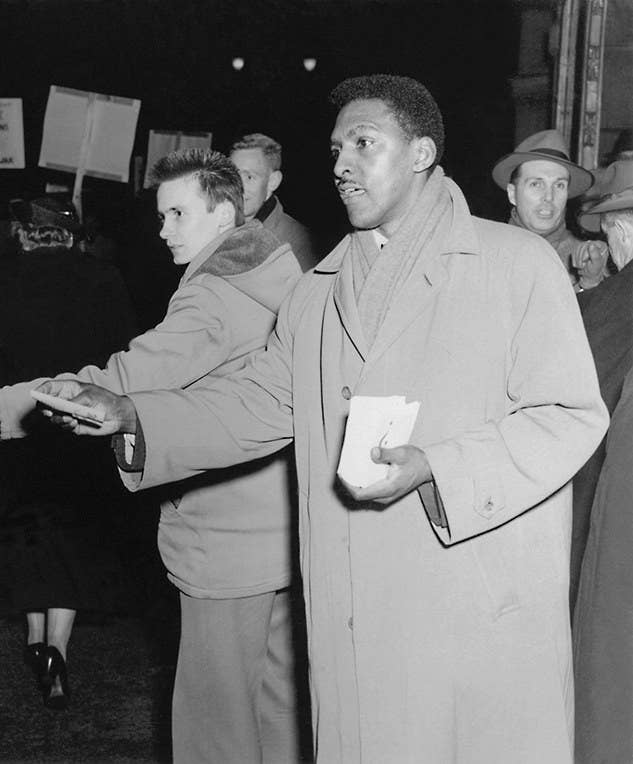
The Cost Of Being Himself
While Rustin's open sexuality is the largest reason he is an outcast to our history books, another reason may be part his political life. While in college he joined the Young Communist League and at this time Communism was still seen as a strong social faux pas. As historian Henry Louis Gates writes in his 2013 article Who Designed the March on Washington, "Though he [Rustin] soon quit the party after it ordered him to cease protesting racial segregation in the U.S. armed forces, he was already on the radar of J. Edgar Hoover's FBI." In other words, he had already become a target of J. Edgar Hoover, the notorious director of the FBI who orchestrated several attempts to take down Dr. Martin Luther King and other famed civil rights leaders and organizers. While many later and more recognizable civil rights activists such as W. E. B. Du Bois and Angela Davis were slightly more accepted as communists, the climate for Rustin was much less accepting. After quitting the Young Communist League Rustin joined the Fellowship of Reconciliation and the Congress of Racial Equality in 1942. With these organizations, Rustin began traveling around the U.S. and engaging the public with dialog targeting the racial inequality black people faced. In 1947 Rustin organized the Journey of Reconciliation, an early form of inspiration for the now iconic Freedom Rides of the 1960s.
When drafted for the war in 1942, Rustin refused to appear before his draft board, as war and the ideals of war went completely against his personal morals and religious beliefs. Rustin's longtime fiancé and fellow activist, Walter Naegle, states that "Many people in them [the draft boards] — gay and straight — 'acted gay' in front of their draft board to get out of serving. He [Rustin] could have easily avoided it had he just said he was gay." But that was not enough for Rustin, a man of deep integrity and a sense of self who would not be satisfied with simply 'getting out of serving.' By refusing to appear before his draft board, he was arrested and jailed for two years. Naegle recalls in a 2013 interview with Buzzfeed that an FBI agent arrived at his door (shortly after Rustin's arrest) to question him "for about 45 minutes."
Rustin's sexuality cost him more than just distinction and prominence in our mainstream civil rights narratives; he was marginalized by the very organizations for which he worked tirelessly. In 1953 Rustin was arrested in Pasadena, California for charges of "sexual perversion," the charge that was often used to criminalize homosexuality, and served sixty days in jail. This arrest and subsequent jail sentence would live on to haunt him and his role as a civil rights leader for the rest of his career. After being jailed for his homosexuality Rustin began to look at his activism work with a different perspective; this was the first time his sexuality had really come into the public view. This experience made him an extremely easy target for the FBI and any other detractors looking to derail popular black activists of the time, which lead to the Fellowship of Reconciliation firing Rustin immediately after serving his sentence. This experience was devastating for Rustin, and lead to the first time he began to retract himself from the frontlines of his activism.
Writing to a friend while in jail, Rustin states: "I know now that for me sex must be sublimated if I am to live with myself and in this world longer," confirming this retraction from attention and a strong shift in perspective. This is the turning point for him moving from being a leader in the Civil Rights Movement to being an organizer. Rustin traveled to Alabama in 1955 to advise Dr. Martin Luther King, Jr. on the Montgomery Bus Boycott, and helped Dr. King incorporate pacifist, Gandhi-inspired philosophy into his protest methods. He is credited for convincing Dr. King to no longer have armed security or a personal handgun, and stated in his own words, "I think it's fair to say that Dr. King's view of non-violent tactics was almost non-existent when the boycott began. In other words, Dr. King was permitting himself and his children and his home to be protected by guns." This is a clear influence that Rustin had on Dr. King in the solidification of a whole and manifested non-violence policy to be carried throughout the rest of Dr. King's activism work.
Rustin and Dr. King's close bonds came under scrutiny, however, in 1960 when Congressman Adam Clayton Powell Jr. dedicated a phone call to Dr. King to threaten to expose Rustin's sexual perversion charge on his record to the public. Powell also threatened to spread the rumor that Dr. King was having sexual relations with Rustin, about which Rustin expressed his feelings of confusion and devastation in a 1987 essay, stating: "Adam Clayton Powell, for some reason I will never understand, actually called Dr. King when he was in Brazil and indicated that he was aware of some relationship between me and Dr. King, which, of course, there was not. This added to his [Dr. King's] anxiety about additional discussions of sex." The phone call was a powerful blow to Rustin, and it ultimately led to Rustin's resignation from the Southern Christian Leadership Conference. This forced resignation was deeply upsetting for Bayard Rustin, as he was kicked out of the movement he so strongly helped to create. For the next three years, Rustin lived as somewhat of an outcast; in his own words, he "fell into an immense loneliness," and stored himself away for a while.
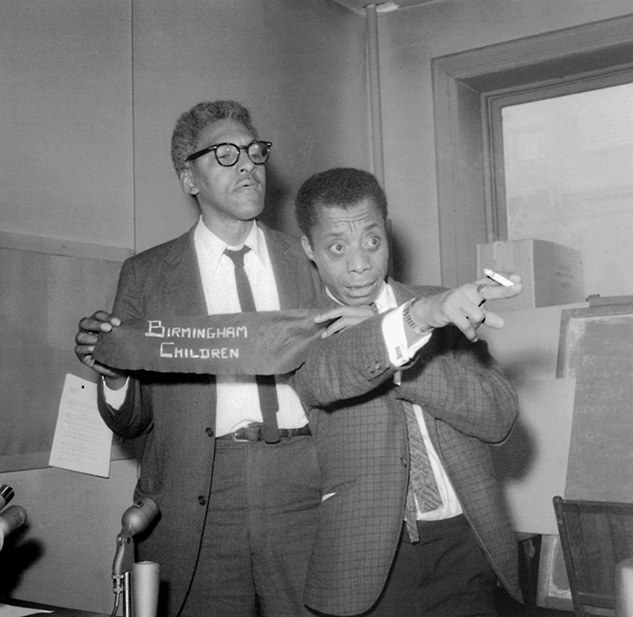
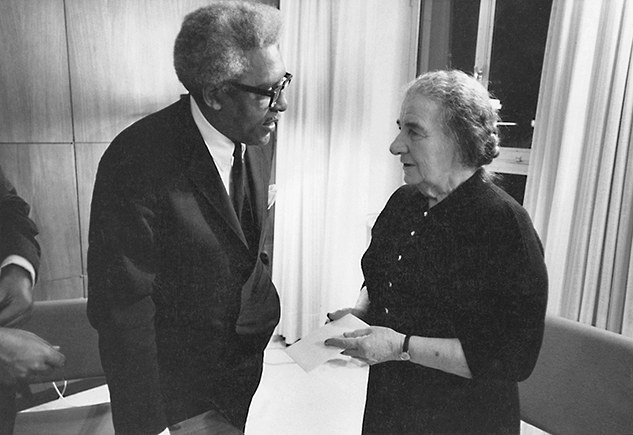
His Call To Greatness
Bayard Rustin was the man responsible for all of the grit-work that went into the now famous March on Washington of 1963; he gathered off-duty police officers to act as marshals, scheduled all of the podium speakers, assembled bus captains to direct traffic, rallied intersecting human rights groups to join in both attending and advertising the event, and helped collect sponsors for the financial sides of the event. In short: Bayard Rustin is whom the March on Washington could not have happened properly without. His dedication and tireless work towards making it happen as best as possible paid off when he got to see an estimated 300,000 people come out to what is now known as one of the most successful demonstrations of protest and solidarity in American history. This was the peak moment of his career and he got to see it all happen.
Despite Rustin's race, creed, sexuality, and all of the discriminations that came with these intersections, he still fought for the rights of the people of his nation. Rustin eventually engaged in activism for gay rights in the 1980s; late into his life and towards the end of his long run of activism work. In a stunningly candid and profound speech given in 1986, Rustin uses his indisputable authority to insist on the connection between the fight for black liberation and gay rights. He strongly states:
"Today, blacks are no longer the litmus paper or the barometer of social change. Blacks are in every segment of society and there are laws that help to protect them from racial discrimination. The new 'niggers' are gays. … It is in this sense that gay people are the new barometer for social change. … The question of social change should be framed with the most vulnerable group in mind: gay people."
The acceptance and connection of this Intersectionality was initially controversial, but eventually embraced enthusiastically by Rustin and, during this same speech, he gave his final charge to activists. With bravado and heart, he states: "One has to fight for justice for all. If I do not fight bigotry wherever it is, bigotry is thereby strengthened. And to the degree that it is strengthened, it will thereby have the power to turn on me."
I asked the question before and I will ask it again: how is it that a man who organized the March on Washington, mentored Dr. Martin Luther King Jr., organized the first freedom rides and Montgomery Bus Boycotts, and brought new peaceful protest techniques to the movement could be so easily forgotten? It is because of the stigma homosexuality attached itself to the throat of Rustin's career and refused to let go. Had Bayard Rustin been a heterosexual man, at least outwardly, his name would be as famous as many of his contemporaries.
This stigma lives on today "closeting" those whose names deserve to be praised. We can see that Rustin's success was eclipsed many times, and until this stigma is broken, his magnificent legacy will continue to go largely unknown. Until homophobia takes its hands out of our history I can only hope that others can find Bayard Rustin, and understand that his legacy's importance for our generation hiding in history; then maybe they too can be deeply inspired by his life of hard work and courageousness as I have been. We've been given the chance to be the generation that breaks these stigmas and rewrite history - so let's do it.
